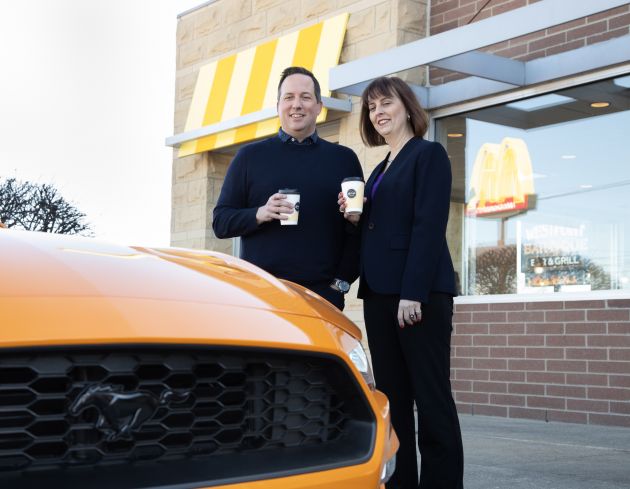Many automakers are looking to incorporate sustainable materials in vehicle production, and Ford is not excluded from this. The company recently announced that it will collaborate with McDonald’s to use coffee beans in vehicle parts such as headlights, as part of efforts to reach its goal of using recycled and renewable plastics in vehicles globally.
According to an official release, millions of kilograms of coffee chaff – the dried skin of the bean – naturally comes off during the roasting process every year. Both companies discovered that chaff can be converted into a durable material to reinforce certain vehicle parts by heating the chaff to high temperatures under low oxygen, mixing it with plastic and other additives and turning it into pellets, which can then be formed into various shapes.
The resulting composite material meets Ford’s quality specifications for parts such as headlight housings as well as other interior and under bonnet components, while being about 20% lighter. Additionally, the heat properties of the chaff component are better than what is used currently, while requiring 25% less energy during the moulding process.
“McDonald’s commitment to innovation was impressive to us and matched our own forward-thinking vision and action for sustainability. This has been a priority for Ford for over 20 years, and this is an example of jump starting the closed-loop economy, where different industries work together and exchange materials that otherwise would be side or waste products,” said Debbie Mielewski, Ford senior technical leader, sustainability and emerging materials research team.
The successful experiment isn’t just for theatrics either, as McDonald’s is expected to send a significant portion of its coffee chaff in North America to Ford to be incorporated into vehicle parts. “By finding a way to use coffee chaff as a resource, we are elevating how companies together can increase participation in the closed-loop economy,” commented Ian Olson, McDonald’s senior director, global sustainability.
Source: Read Full Article

